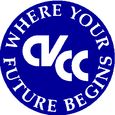Other Online Certificates and Courses
![]()
![]() Call us at:
Call us at:
434-832-7807
![]() Send email to:
Send email to:
masnaghettic@cvcc.vccs.edu
Generations in the Workplace
There are now four generations in the workplace, each with a different set of values, attitudes, work behaviors and communication styles. Find out how your co-workers in other generations approach work, then discover something new about yourself and your generation. Get an understanding of each of the four generations. Learn the distinguishing characteristics of each that impact their approach to the workplace.
Take back practical tips and techniques for communicating generationally in the workplace.
One month online course; includes book. Lead instructor: Kassia Dellabough; guest presenter Julie Coates
![]() Course Outline
Course Outline
Unit 1.
Distinguishing characteristics of the four generations in the workplace
Characteristics of Seniors and the Silent Generation
Characteristics of the Baby Boomers
Characteristics and definitions for Generation X
Characteristics and names for Generation Y
Unit 2.
Societal factors that influence generational values and behavior
The impact of World War II
Social movements, critique of authority, and equality in the workplace
Super-moms, cynicism and the advent of computers
How the World Wide Web changed values and behavior
Unit 3.
Differences in how the generations approach work
How generations perceive time differently
Inputs versus outcomes
How generations perceive and use technology differently
Generational differences in work values and behavior
Unit 4.
Generational differences in communication
Traditional workplace communication etiquette
Understanding Boomer politeness and indirectness
Why Gen X is frank, upfront and pointed
Gen Y, the newbies in workplace communication
![]() About online learning
About online learning
Online learning is a fun, enjoyable and very productive way to learn. Millions of people are learning online each year. You will engage with the instructor and other participants. You will get to know your instructor and other participants. You may make friends. It’s easy. It’s fun.
![]() How the Course Works
How the Course Works
It is easy to participate in your online course. After you register, you will be given a web address to go to get into your online classroom. You will have a password and use your email address and password to gain access.
Once inside the online classroom, here’s what you can expect.
![]() Participate when you want
Participate when you want
Participants can participate as little or as much as you want.
You can participate any time of day or evening. The online classroom is open 24 hours a day, 7 days a week.
There are no live real-time requirements or meetings. You decide when you participate.
For the best learning, participants should log into the course on 2-3 different days of the week.
![]() What you will do
What you will do
For each Unit, you will:
- Read the print readings (about 20 pages a week)
- Have the option of accessing the online readings
- Listen to the audio presentation for the Unit and view the slides
- Have the option of taking a self-quiz to see how much you have learned
- Engage in written online discussion with your instructor and other participants
For best learning, you should make one or more comments at 2-3 different times each week.
The content (readings, audio lectures, slides) and self quizzes are accessible for the entire course, so you can work ahead, or go back and review again, at your convenience.
![]() Discussion
Discussion
The Discussion for each Unit lasts one week. All comments are made in writing and can be made at any time of the day or night.
Your instructor will log into the Discussion area at least once a day and answer questions, make comments, and respond to comments by you and the other participants.
We encourage you to make 2-3 comments each week to maximize your learning and enjoyment of the course.
It’s easy. It’s fun.
-Next session coming soon- $ USD
About Your Instructors
 Kassia Dellabough has been teaching at the University of Oregon for over 20 years in a wide array of subject areas ranging from Applied Creativity and Design to Project Management for Electronic Publishing. An artist, she has created art with clay, fabric (quilts), and paint. She is a certified Career Development Facilitator. She holds certification as Qualified Meyers-Briggs Assessment Administration, Neurolinguistic Practitioner's Certification, and is a Certified Career Development Facilitator by the CDF Council for Credentialing & Education.
Kassia Dellabough has been teaching at the University of Oregon for over 20 years in a wide array of subject areas ranging from Applied Creativity and Design to Project Management for Electronic Publishing. An artist, she has created art with clay, fabric (quilts), and paint. She is a certified Career Development Facilitator. She holds certification as Qualified Meyers-Briggs Assessment Administration, Neurolinguistic Practitioner's Certification, and is a Certified Career Development Facilitator by the CDF Council for Credentialing & Education.
Dellabough has written on the subject of generational management, does speaking all over the United States and Canada on the subject, and is the lead presenter on generational marketing for a four day intensive training institute for professionals.
 Julie Coates, guest presenter, is the author of the pioneering book, Generational Learning Styles, and is a national authority in the area of demographics, generations, and Generation Y. She has been interviewed by The New York Times, BBC, and other national media on the subject.
Julie Coates, guest presenter, is the author of the pioneering book, Generational Learning Styles, and is a national authority in the area of demographics, generations, and Generation Y. She has been interviewed by The New York Times, BBC, and other national media on the subject.
Coates writes frequently on the subject and has keynoted conferences in Russia, Australia, Mexico, and the United Kingdom, as well as throughout North America. She has consulted with business, government and educational institutions on the subject.
![]() Course Objectives
Course Objectives
- To foster an understanding among members of different generations of the differences in perception, expression, and interpretation of common situations in the workplace
- To understand the societal forces that shape the generational personality and world view
- To create an understanding of how and why different generations use language and assign different meaning to the same content
- To explore the differences in how different generations perceive and value time
- To provide concrete strategies for how to communicate effectively across generational boundaries
- To create a better understanding of and tolerance for generational differences
- To minimize conflict and miscommunication across generations
![]() Course Outcomes
Course Outcomes
Upon successful completion of the course, you will:
- Be able to recognize generational behaviors and interpret their meanings correctly
- Be able to correctly interpret the language of members of other generations
- Be able to adjust your own communication style to be more acceptable to members of other generations
- Understand the societal forces that shape generational behaviors
- Avoid/eliminate misunderstandings that lead to loss of productivity and teamwork
- Respect the differences of members of other generations
